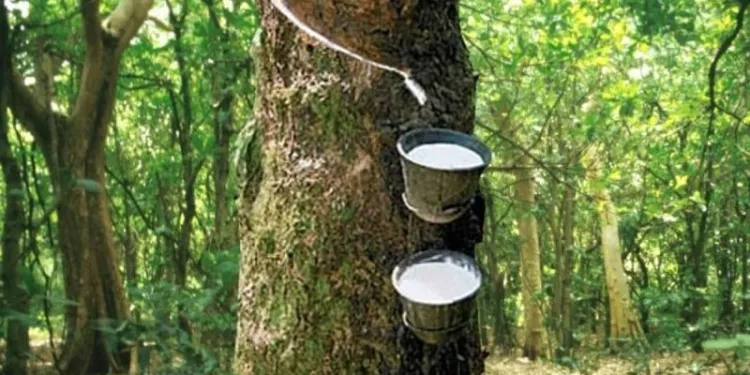KOCHI: More rubber growers are making a beeline for beekeeping in estates in Kerala as rubber prices continue to be at rock-bottom levels. Rubber tree is an excellent source ofhoney during January to April, the time when leaves are formed and apiculture is done. Though selling honey provides additional income, it has been mostly done by migratory bee keepers as not many growers have shown interest, given the attention and care the job demands.
However, with prices at a five-year low, growers seem to be keen on beekeeping now. “Only a small percentage of people attending our apiculture training sessions actually go for it. But this time, 90% of those who attended have demanded bee keeping boxes,” said Shaju Joseph, managing director of Kannur-based Malabar Honey and Food Park, which buys around 200 tonne of honey from rubber estates.
The company buys from farmers at Rs 130 per kg and they sell mostly in bulk to ayurvedic companies. Their branded honey retails at Rs 300 a kg. “By installing 500 bee boxes, a farmer can get up to 10 tonne of honey,” he says.
The honey production in trees is dependent on climatic factors as rain or drought during these months will have an adverse impact. “The weather irregularities resulted in halving the yield to 7.5 kg per hive last year. But this time, the weather looks favourable,” said Nelvin, general manager of Kottayam-based Malanadu Development Society, which sells branded honey.
The estimates of honey produced from the rubber estates in Kerala differ. The Rubber Board projects a conservative figure of 1,000 to 2,000 tonne. But S Devaneshan, associate director of Kerala Agricultural University, Vellayini, said it could run into several thousand tonne.
“Rubber tree is an abundant source of pollen and nectar, two factors required for apiculture to thrive. If the disease leading to mass death of honey bees hadn’t occurred in the nineties, the honey output would have been more,” he said. Rubber Board gives subsidy for buying bee-keeping materials. But this time a fund crisis may force the board to go slow on subsidies, according to a senior officer. This has come at a time when growers are showing more interest in apiculture due to low prices of rubber.
But this hasn’t deterred the rubber producer societies (RPS) from taking initiative to give training in apiculture. Elavanpadam Rubber Producer Society in Palakkad, which successfully markets honey under Dhanamitra brand, has been involved in training since 2002. “We can only give training. It is up to the farmers to take it up if they can put in some hard work. Honey bees help in pollination and can result in better productivity of inter-crops in rubber estates,” said V Babu, president of Elavanpadam RPS.
– India Times


























